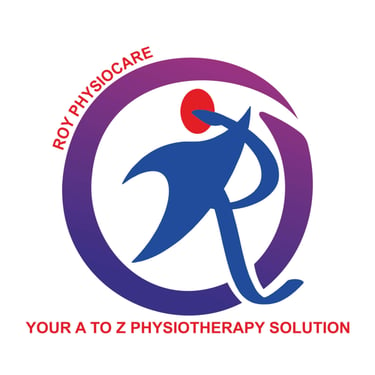MOVEMENT IS MEDICINE, ADD LIFE TO YEARS!
Physiotherapy: is it "MASSAGE"?
This short blog describe the basic introduction to physiotherapy, differences between a traditional massage & Physiotherapy, and the role of physiotherapy in our lives.
Dr. Akash Roy (PT)
7/24/20242 min read


What is Physiotherapy?
Physiotherapy is a healthcare profession focused on the treatment, rehabilitation, and prevention of physical injuries or dysfunctions through natural methods such as exercise, manual therapy, and education. The goal is to improve a person’s movement, function, and overall well-being without relying on surgery or medication. Physiotherapists are trained professionals who assess, diagnose, and create personalized treatment plans to address musculoskeletal, neurological, and other physical health issues.
Common conditions treated by physiotherapists include back pain, sports injuries, arthritis, and post-surgery recovery, as well as conditions like stroke and Parkinson’s disease.
Massage vs. Physiotherapy: Understanding the Difference
While both massage therapy and physiotherapy aim to alleviate pain and improve physical function, they are distinct in terms of approach, training, and scope.
Massage Therapy:
Focus: Massage primarily targets the soft tissues of the body—muscles, tendons, and ligaments.
Techniques: Massage therapists use hands-on techniques such as kneading, stroking, and pressure to relax muscles, relieve tension, and improve circulation.
Goal: The focus is often on relaxation, stress reduction, and short-term relief from muscular pain. While massage can help ease tension and soreness, it is generally not a comprehensive solution for long-term physical rehabilitation.
Settings: Massage therapy is commonly offered in spas, wellness centers, and rehabilitation clinics.
Physiotherapy:
Focus: Physiotherapy takes a more holistic approach, addressing not only the symptoms but also the root cause of the dysfunction. It works on improving the function of muscles, joints, and the nervous system.
Techniques: Physiotherapists use a combination of manual therapy (including massage techniques), exercise programs, and advanced treatments like electrotherapy, ultrasound, and heat/cold therapy.
Goal: The aim is to restore mobility, strengthen weak muscles, improve posture, and promote long-term recovery and function. Physiotherapy is often required after surgery, injuries, or for chronic conditions.
Settings: Physiotherapists work in a variety of settings, including hospitals, clinics, and rehabilitation centers, and often in collaboration with doctors and other healthcare providers.
While massage can complement physiotherapy in certain cases, physiotherapy is a more comprehensive, medically grounded approach aimed at achieving long-lasting improvements.
The Role of Physiotherapy in Human Life
Physiotherapy plays a vital role in promoting and maintaining physical health across various stages of life. Here are some of the key contributions:
Injury Prevention and Recovery: Whether it’s a sports injury, an accident, or post-surgery rehabilitation, physiotherapy helps individuals recover faster and regain strength and flexibility, reducing the risk of future injuries.
Pain Management: Chronic pain due to conditions like arthritis, sciatica, or postural problems can significantly affect the quality of life. Physiotherapy offers non-invasive treatments to reduce pain and improve day-to-day function.
Restoring Mobility: For individuals dealing with mobility issues due to aging, neurological conditions like stroke, or physical trauma, physiotherapy helps improve balance, coordination, and strength, thereby enhancing independence.
Managing Chronic Conditions: Physiotherapy is essential in managing chronic diseases such as diabetes, heart disease, and obesity, providing exercises and treatments that improve cardiovascular health, circulation, and metabolic function.
Improving Mental Well-being: Physical movement is closely tied to mental health. Physiotherapy helps boost mood, reduce anxiety, and enhance overall quality of life by enabling individuals to stay active and engaged in daily activities.
Conclusion
Physiotherapy is more than just a method to treat injuries; it is a critical part of healthcare aimed at improving a person’s quality of life by promoting physical strength, mobility, and function. Whether you are recovering from an injury, managing a chronic condition, or simply seeking to improve your overall health, physiotherapy can play a key role in your journey to wellness.
Roy Physiocare
Your A to Z Physiotherapy Solution
© 2026 Roy Physiocare. All rights reserved.


Call us:
